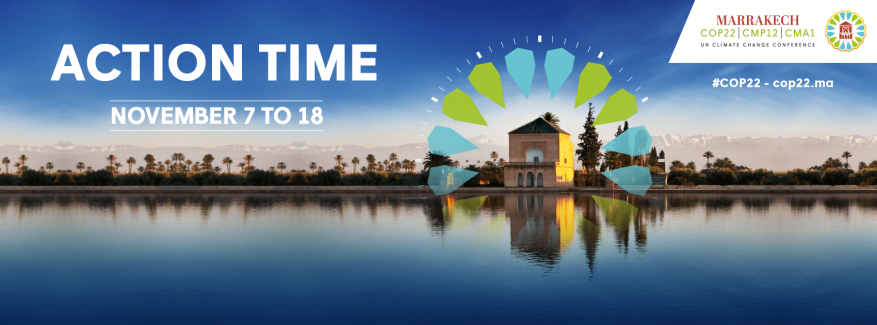The 22nd annual meeting of the UN Conference of Parties (CoP) on climate change takes place in Morocco this month, at a time of mounting concern at the impact that global warming is having on food production in Africa, one of the continents most at risk from climate change.
Just last month in West Africa, a number of farmers with whom we work told us how the early end of seasonal rains is putting their crops at risk (see our video below). Meanwhile, across the continent, in Ethiopia, we are witnessing how over 10 million people are receiving food aid because of repeating droughts. In several of our programmes the improved availability of drought-tolerant seeds, that we are supporting farmer cooperatives to produce and distribute, has been vital to reducing the effects of Ethiopia’s current El Nino crisis.
COP22 takes place just weeks after the UN Food and Agriculture Organization’s annual ‘World Food Day’ which focused on the links between food and climate. The UN system is very clear on the challenges that lie ahead – countries across the globe must address their future food and agriculture needs within their climate plans. Given the importance of smallholder agriculture in Africa and Asia in particular, the way forward is not in dispute – we must all work to strengthen the resilience of smallholder farmers if we are to guarantee food security for the next generation.
Rural poverty and food insecurity have long been a reality in many parts of sub-Saharan Africa, but rising temperatures and the disruption of seasonal rains upon which millions of small-scale farmers rely is creating altogether new challenges for Africa’s poorest people.
Climatologists estimate that in East Africa it is approximately 1.5 degrees Fahrenheit warmer today than it was in the 1980s, while rainfall during the main rainy season has fallen by 15 per cent. Projections also show that if the challenge is not addressed, climate change could drive down yields of staple crops such as rice, wheat and maize by 20% in the next 30 years. During the same period, the growing season for grain crops in some regions could shorten by up to 40%.
240 million people in Africa live in extreme poverty, much of which is concentrated in rural areas, on small farms. Many live on the brink. “One extreme event can drive people into poverty almost instantly,” says Calestous Juma, an authority on African agriculture at Harvard University.
One of the main factors in Africa’s vulnerability to the effects of climate change is the region’s heavy reliance on rain-fed agriculture. Irrigated farming counts for under 6% of all agricultural production in Africa, compared to 30% in Europe and 35% in India.
Under one-third of Africa’s arable farmland is cultivated, while irrigated production can be increased greatly, meaning there is enormous potential to grow much more than at present.
Improved farming technologies, better access to improved quality seed, reform of land laws, and the utilization of information systems including mobile phones to give farmers timely information, can all contribute greatly to the growth of Africa’s farming sector.
Africa’s farming systems need to adapt to the adverse effects of climate change and become more resilient, productive and sustainable. ‘Climate smart’ farming practices will help, and will enable Africa’s small-holder farmers to grow food in a way that is sustainable, and will help them to use their natural resources wisely.
It will take significant investment, energy and focus to unlock Africa’s potential in the face of the climate challenge. The COP22 summit in Morocco is the next step in that process.
Ray Jordan, Chief Executive, Gorta-Self Help Africa
Last month, two smallholder farmers in Burkina Faso told us how climate change impacts their work and their life:

